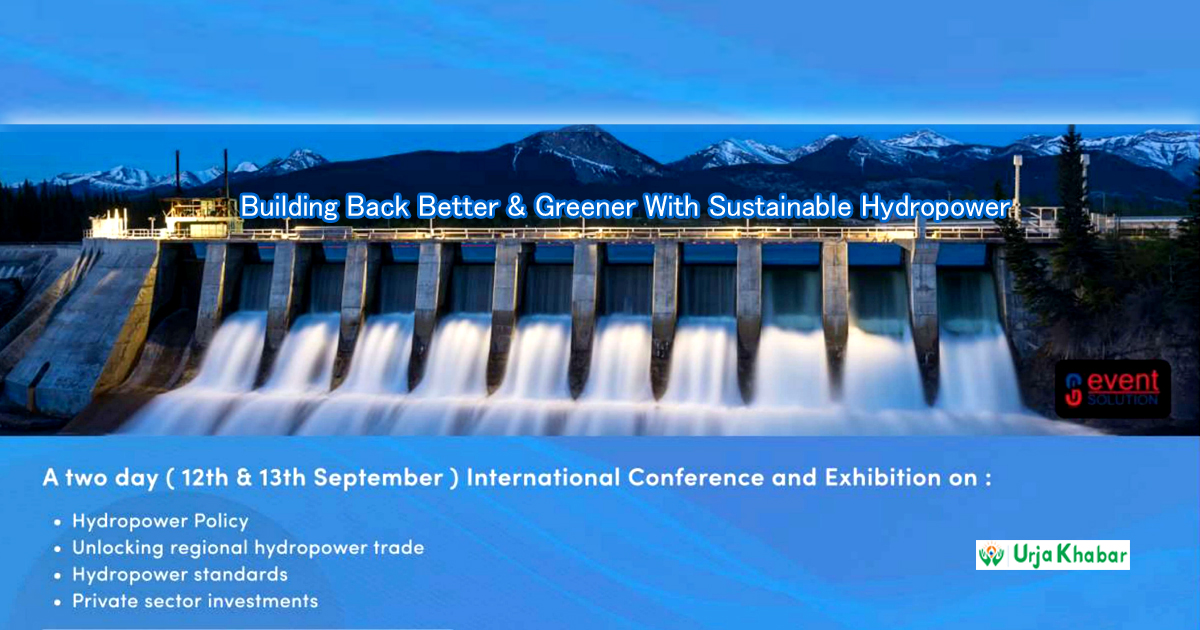
Kathmandu; Stakeholders of the energy sector among high-level delegations representing Bangladesh, Bhutan, India and Nepal have stresseed on resolving the political issues and establishing concrete regulations in order to unlock regional hydropower trade among the four neighbouring Southeast Asian nations.
At a panel discussion held 13th Sep. over the program International Conference on Building Back Better and Greener with Sustainable Hydropower at Kathmandu, Sandeep Shah, coordinator for Nepal Hydropower Association emphasised on the growing bilateral transaction of energy among the four neighbouring countries, adding that multilateral transactions will also be witnessed in the region very soon. “Although talks surrounding multilateral trade were started ages ago, a few developments regarding it can be seen on the horizon,” he said.

Similarly, Sandeep Kumar Dev, Joint Secretary of Water and Energy Commission Secretariate of the panel discussion said that BBIM nations will almost double the demand in terms of capacity and energy requirement in the next two decades adding that regulations are already underway for unlocking regional trade. Dev further shared that man-made energy, renewable energy and the complementary energy generated between the seasons can also be used to the region's advantage.
Meanwhile, Mohammad Hossain, director general of Power Cell, Bangladesh said that the hydropower is sustainable although there could be some concerns in environmental challenges.He emphasised that the regional hydropower has already been unlocked, however there are some security gauges that need to change. "There are a lot of hurdles in terms of policy, regulation in cross border trade. The Indian guideline has opened up along with some clearance in regulations but there are still issues in cross border trade,” he shared.

"The GMR project is a big thing for us. If we are going to sign from GMR, the three countries will be involved and that will remove mental assumptions and issues for further multilateral trade. We have had discussions with nepal. We are planning to import 50MW from Nepal before next summer and may sign the contract within this month. This power exchange can give us a lot of mileage and open doors to an alternative for short term agreement," he added.
Meanwhile, Karma P Dorji, minister for economic affairs of Bhutan said, “As we talk about the regulatory risks in unlocking regional potential, there is also a presence of political risk hampering the development of multilateral trade which has not been discussed.
Likewise, Sanjay Narayan Bade, ceo of GMR group stressed on establishing power generating stations while resolving the issues seen in surplus power to be traded in BBIM countries. “I believe that having an effective trade between two countries is the best insurance against political risks. The risk will be mitigated with the start of energy trade. We also need to look at cross borders so that they materialise within the designated timeline for stronger bilateral ties. We need to move away from government to government trade and also look for body to body trade for effective trade among BBIM countries,” Bade shared.
On the occasion, a memorandum of understanding was also signed between representatives of Nepal Hydropower Association and the Sukoshi Hydropower Association.